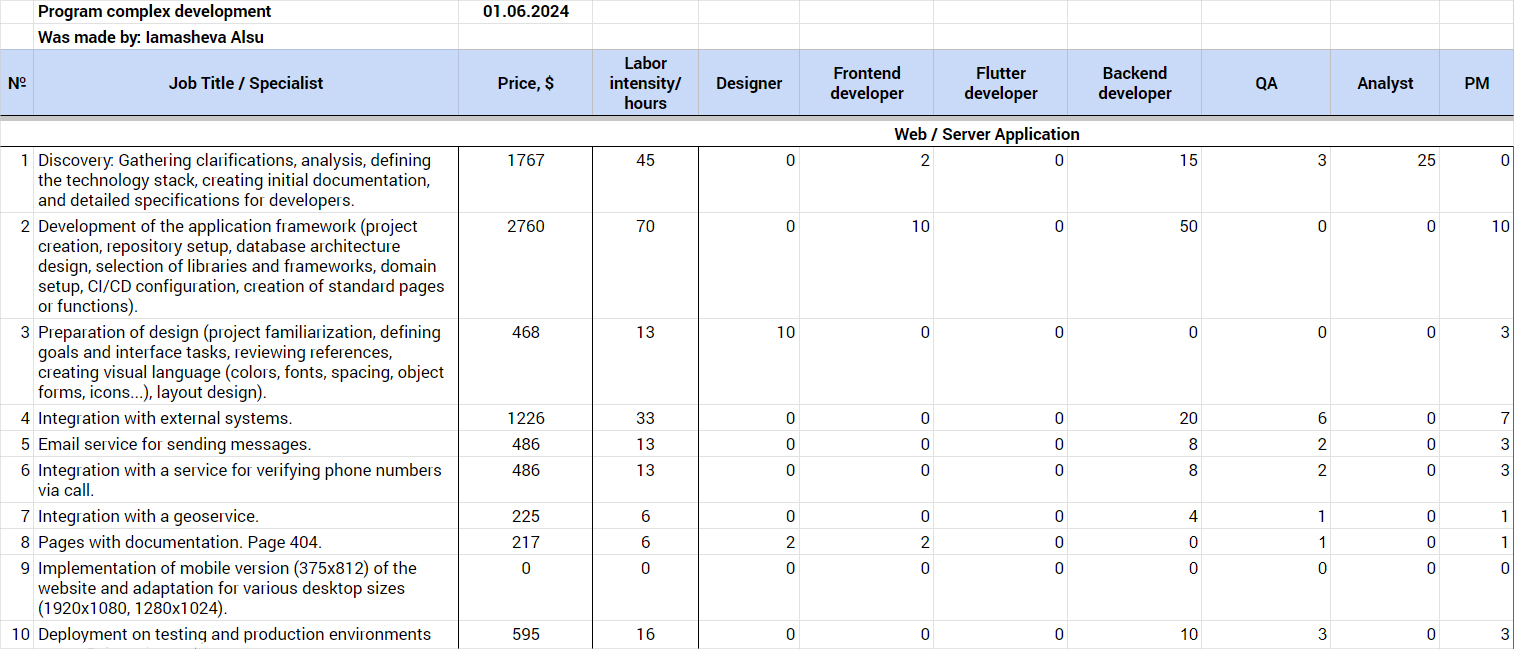Why doesn’t any studio quote an exact cost for app development?
Because it’s impossible. At least at the idea stage. However, when planning such a project, the Customer wants to know how much they will invest and when the app will be operational! Below, we will explain what determines the cost of app development and who is involved in this process. No spoilers, we’ll explain everything step by step.
Most studios, including ours, use a flexible app development system: all work is divided into small stages called sprints, and the cost is calculated separately for each stage after the completion of the previous one. This approach is justified and attractive for three reasons:
- Simplicity in calculating and estimating development costs. When the developer quotes a fixed cost for development, they include high risks, which means you end up paying more for the same work and app functionality.
- Flexible development process. You can contribute ideas at each stage, which will be accepted and included in the budget. For a fixed price, you need a fixed specification. In this case, you have to wait until all the main and contractually agreed-upon work is completed before any additional changes are accepted, typically for an extra fee.
- Going beyond the initial specifications. If the developer realizes that a certain feature can be improved, they have the opportunity to include this work in the budget. The development process is aimed at creating a high-quality application.
App development cost formula
So, how is the cost of app development calculated? The initial data for calculation are similar across many studios. The price is influenced by:
- the set of app functionalities;
- the complexity and number of development hours;
- the number of platforms and devices.
However, the formula for calculating the final development cost can vary between different studios and teams.
At IT Brick, we use a simple and easy-to-understand formula:
Final cost of app development = (Specialist 1’s hourly rate × Specialist 1’s hours worked) + (Specialist 2’s hourly rate × Specialist 2’s hours worked) + … + (Specialist N’s hourly rate × Specialist N’s hours worked)
Now, let’s discuss how to determine which specialists will be involved in the project and how much their hourly rate is.
Development process and participants
The composition of the team and the tasks involved depend on the type of application you are developing—web or mobile. The logic and algorithm of the creation process are similar, but with native mobile development, a separate application is developed for each platform—Android and iOS. This is due to different programming languages and adherence to specific guidelines.
For cross-platform development, a single application is developed, but time is allocated for adaptation to the second platform. If the application requires data synchronization with a server or administration through a web interface, then backend development is also necessary.
The role of each specialist in the app development process (using IT Brick as an example):
| Specialist | Web Application | Mobile Application |
| Analyst | Designs the logic and workflows of the program, algorithms for calculations, develops project architecture, identifies weaknesses, and writes technical specifications | |
| Designer | Develops design and conceptualizes the interface | Designs for Android, designs for iOS, additionally – design for the server part |
| Frontend-developer | Transfers the designed interface into the browser | This function is performed by the main developer. A frontend developer is involved only for the server-side markup |
| Backend-developer | Writes program code | Development for Android, development for iOS, additionally – server-side development |
| QA | Checks for errors and user-friendliness across all browsers and devices | Tests the application on Android, tests the application on iOS, additionally – tests the server-side |
| Project manager | Coordinates the work of all specialists, communicates with the client, monitors deadlines and work quality | |
How much does a specialist cost
The cost of a specialist’s work hour depends on three factors:
- country and city;
- technologies used;
- level of expertise and experience.
According to data from Tagline agency in 2015, the average cost per hour for a Russian specialist involved in development is $57 (calculated from salary figures). For the Client, the cost is 4.2 times higher.
Estimated development cost
Next, an estimate is prepared. When calculating, we assess the time spent by each specialist, specify the hourly rate, and calculate the total development cost of the application using the formula described above.
It sounds simple, doesn’t it? Perhaps. But now you can see that estimating development costs has its nuances. It’s difficult to assess based on a brief description at the idea stage. After all, we don’t know exactly how each function will be implemented, and therefore, we don’t know how much time the team will need.
However, we can provide a preliminary estimate. Write to us so that we can calculate approximate costs and development timelines. We can also provide comments on the task and discuss implementation options.

